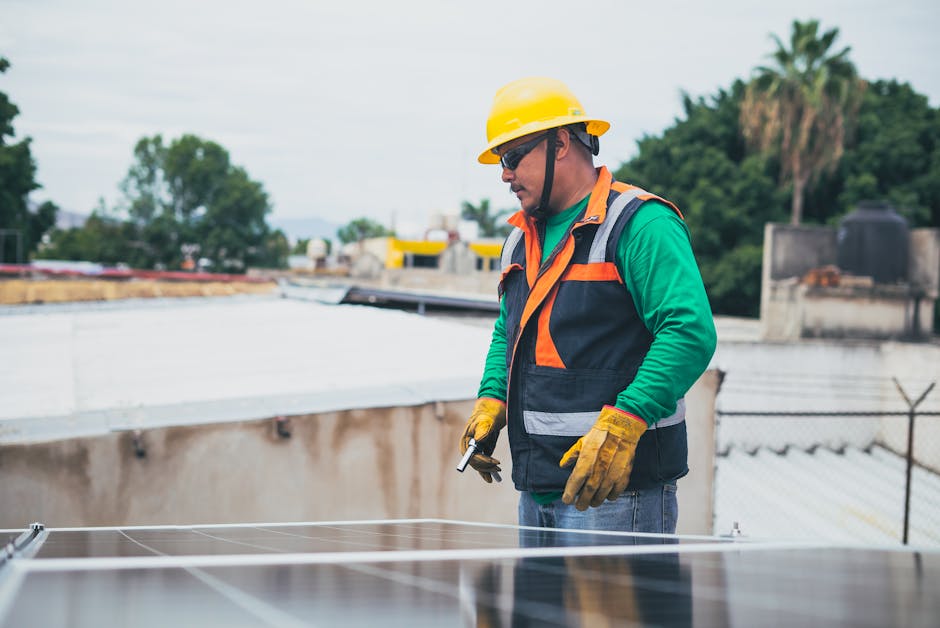The Surge of Solar Panel Recycling in Asia-Pacific: Navigating the Future of Renewable Waste

The Surge of Solar Panel Recycling in Asia-Pacific: Navigating the Future of Renewable Waste
In the face of escalating environmental challenges and a global push towards sustainability, the Asia-Pacific (APAC) region has emerged as a battleground for a critical yet often overlooked issue: solar panel recycling. With the influx of end-of-life (EoL) solar panels, APAC, a leader in solar installations, is now pivotal in shaping the future of renewable energy waste management.
Unveiling Market Dynamics and Strategic Shifts
Market Expansion: The solar panel recycling market in APAC experienced a transformative phase in 2024, achieving a market valuation of approximately USD 36.39 million. Forecasted to burgeon at a compound annual growth rate (CAGR) of 15.6% through 2031, experts anticipate the market to exceed USD 1.12 billion by 2034. This growth trajectory is underpinned by escalating solar installations across China, Japan, India, and Southeast Asia, which amplify the volume of solar waste.
Technological Innovations: Pioneering technologies such as laser-assisted recycling, chemical leaching, and automated disassembly have streamlined the recycling process, enhancing the recovery of valuable materials like silicon, silver, and glass. Innovators like Veolia are spearheading advancements, setting new benchmarks in material recovery efficiency.
Comparative Analysis: APAC vs. Global Trends
While APAC is rapidly advancing in solar panel recycling, other regions exhibit varied paces and strategies. In contrast to APAC's aggressive regulatory and technological approach, North America and Europe display a more conservative adoption curve due to differing regulatory landscapes and market maturity levels.
Regulatory Frameworks and Policy Drives
Legislative Catalysts: Nations like Japan and South Korea have established robust frameworks mandating solar panel recycling. In 2024, India introduced an Extended Producer Responsibility (EPR) policy, compelling manufacturers to reclaim and recycle panels. This regulatory momentum is crucial for fostering a sustainable recycling ecosystem.
Economic and Environmental Stakes
Resource Recovery: The recycling of solar panels not only mitigates waste but also serves as a critical component in resource recovery, essential for sustaining the solar manufacturing industry amidst fluctuating raw material costs. The strategic recovery of glass and metals from EoL panels significantly reduces the dependency on raw material imports, strengthening resource security in the region.
The surge in solar panel recycling is a beacon of sustainability that illustrates a profound shift towards a circular economy in the APAC region—a trend that holds the promise to redefine industrial norms and environmental stewardship globally.
Technological Trajectory and Investment Insights
Investment Flows: The escalation in solar waste volumes has catalyzed investments into specialized recycling facilities and technological R&D. These developments not only enhance operational efficiencies but also attract global investors keen on green finance opportunities, propelling the market towards unprecedented growth.
Future Outlook and Strategic Importance
The trajectory of the solar panel recycling market in APAC is poised for significant expansion, driven by both mounting environmental pressures and strategic economic opportunities. As the region positions itself as a global leader in this niche yet crucial market, the implications for global waste management norms, resource recovery practices, and sustainable industrial policies are profound.
Emphasizing the strategic importance of solar panel recycling not only aligns with global sustainability goals but also presents substantial economic opportunities for the APAC region. It is imperative for stakeholders across the board—from policymakers to industry leaders—to harness these trends, prioritize technological adoption, and drive regulatory alignment to secure a sustainable and profitable future in solar panel recycling.
In conclusion, as the world gravitates towards renewable energies, the foresight and agility demonstrated by the APAC region in managing solar panel EoL could set a global benchmark, catalyzing a worldwide paradigm shift towards sustainable renewable energy practices.
